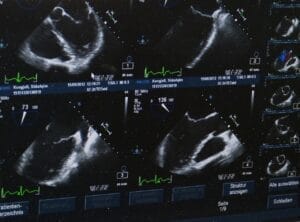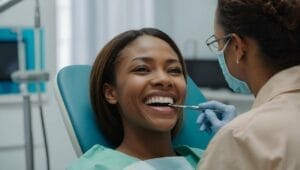What should be the care for swelling and bruises that occur after aesthetics in the summer?
Apply cold compresses: Use ice packs or cold compresses wrapped in a cloth to gently apply to the swollen or bruised areas. Cold therapy can help reduce inflammation and provide relief. Be sure to follow your surgeon’s instructions on the duration and frequency of cold compress application.

 4.7
4.7
Would you like to receive information about the operations from Vanity Doctors?
As Vanity, we can give you information about the operation you are considering.
Ask the DoctorElevate the affected area: Keeping the swollen area elevated above heart level can help reduce swelling. For instance, if you had facial surgery, use extra pillows to prop up your head while resting or sleeping.
Wear compression garments: Your surgeon may recommend wearing compression garments after plastic surgery. These garments help minimize swelling and promote better blood circulation. Follow your surgeon’s instructions on how long to wear them and when to remove them for cleaning or bathing.
Stay hydrated: Drink plenty of water to stay hydrated during your plastic surgery recovery. Proper hydration supports the healing process and can aid in reducing swelling and bruising.
Avoid sun exposure and heat: Excessive sun exposure and heat can exacerbate swelling and prolong the healing process. Protect the treated areas from direct sunlight, wear sunscreen, and avoid activities that may cause excessive sweating or heat exposure.
Follow your surgeon’s post-operative instructions: Adhere to the specific guidelines provided by your plastic surgeon. This may include avoiding certain activities, taking prescribed medications, attending follow-up appointments, and following a proper diet.
Patience and rest: Allow yourself adequate time for recovery and rest. Engage in light activities as recommended by your surgeon, but avoid strenuous exercise or activities that could strain the surgical area.
Is it possible to be exposed to sunlight after plastic surgery in summer?
During the recovery after plastic surgery in hot weather, it is important to take precautions to minimize sun exposure and protect the surgical area. Excessive sun exposure can lead to complications such as increased swelling, prolonged inflammation, and potential damage to the delicate tissues.
To ensure a safe and smooth recovery in hot weather, it is advisable to:
Minimize sun exposure: Stay indoors or seek shade as much as possible to avoid direct sunlight. The intense heat of the sun can exacerbate swelling and discomfort.
Follow the surgeon’s instructions: Your plastic surgeon will provide specific guidelines for your recovery period. These may include avoiding sun exposure and keeping the surgical area protected.
Wear protective clothing: When venturing outside, cover the surgical area with loose-fitting clothing made of breathable fabrics. This can help shield the area from direct sunlight and reduce the risk of complications.
Use sun protection: Apply a broad-spectrum sunscreen with a high SPF to exposed areas of the body, including the surgical site. Reapply sunscreen frequently, especially if sweating or spending extended periods outdoors.
Protect the surgical site: If the surgical area is not fully healed or has sutures, use a clean, sterile dressing or bandage to protect it from direct sunlight and potential contamination.
Stay hydrated: In hot weather, staying hydrated is crucial for overall healing and comfort. Drink plenty of water throughout the day to maintain hydration levels.
It is vital to consult with your plastic surgeon for personalized advice regarding sun exposure and recovery after plastic surgery in hot weather. They will be able to provide specific instructions based on the type of surgery performed, your individual circumstances, and the local climate conditions.
Does sweating in summer affect wound healing after plastic surgery?
Sweating can introduce moisture and bacteria to the surgical site, which may increase the risk of infection and hinder proper wound healing. Therefore, it is crucial to manage sweat and maintain cleanliness during the recovery period. Here are some tips to consider:
Keep the surgical area clean: Follow your plastic surgeon’s instructions for cleaning and caring for the surgical site. Use gentle, non-irritating cleansers recommended by your surgeon to maintain cleanliness and minimize the risk of infection.
Avoid excessive sweating: In the early stages of recovery, it is advisable to avoid activities that may cause excessive sweating, such as intense physical exercise, hot saunas, or steam rooms. These activities can increase sweat production and potentially compromise wound healing.
Stay in a cool and well-ventilated environment: Opt for air-conditioned spaces or areas with good airflow to minimize sweating. This can help keep the surgical area dry and reduce the risk of complications.
Dress appropriately: Wear loose and breathable clothing that allows air circulation and helps absorb sweat. Avoid tight or synthetic fabrics that can trap moisture and impede the healing process.
Use absorbent dressings or pads: If approved by your surgeon, consider using absorbent dressings or pads on the surgical area to help absorb sweat and maintain dryness.
Follow post-operative care guidelines: Your plastic surgeon will provide specific instructions for pre-holiday care. Adhere to these guidelines, which may include avoiding sun exposure, using recommended ointments or dressings, and maintaining cleanliness to optimize wound healing.
It is crucial to consult with your plastic surgeon for personalized advice on pre-holiday plastic surgery care and managing sweating during the recovery period. They will provide you with specific instructions based on your procedure, individual needs, and the anticipated impact of sweating on your recovery.
What should be the care after plastic surgery in summer?
Post plastic surgery care tips in summer include:
Protect your incisions: It is crucial to keep your incisions protected from direct sunlight. Apply a broad-spectrum sunscreen with a high SPF to the treated area whenever you are exposed to the sun.
Avoid excessive heat and sweating: To prevent complications, it is important to avoid excessive heat and sweating. Stay in cool environments and refrain from activities that can cause excessive perspiration, as it may irritate the incisions and increase the risk of infection. Opt for cool showers instead of hot baths.
Stay hydrated: Proper hydration is essential for the healing process and maintaining optimal skin health. Drink plenty of water, especially during hot summer days.

Follow the recommended skincare routine: Your plastic surgeon will provide specific instructions on how to care for your incisions. Adhere to their guidelines diligently and avoid using any skincare products or makeup that could irritate the treated area.
Wear loose and breathable clothing: Choose loose-fitting and breathable clothing to avoid rubbing or putting pressure on the surgical site. Opt for lightweight fabrics that allow airflow to prevent excessive sweating.
Avoid swimming and prolonged sun exposure: Refrain from swimming in pools, hot tubs, or the ocean until your surgeon gives you the green light. Prolonged sun exposure and exposure to chlorine or saltwater can be harmful to your incisions and impede the healing process.
Stay out of saunas and steam rooms: Heat and humidity from saunas and steam rooms can negatively impact the healing process. Avoid these environments until your surgeon advises it is safe to do so.
Be cautious with physical activities: Steer clear of strenuous activities, heavy lifting, or anything that puts pressure on the surgical site. Follow your surgeon’s instructions regarding when it is safe to resume exercise and other physical activities.
Attend follow-up appointments: Regularly attend your scheduled follow-up appointments with your plastic surgeon. They will monitor your healing progress, provide further guidance, and address any concerns you may have.
Practice patience: Healing takes time, so it is important to be patient with the recovery process. If you experience any unusual symptoms, persistent pain, or signs of infection, contact your surgeon immediately.
Remember to consult with your plastic surgeon for personalized post-surgery care instructions tailored to your specific procedure and individual needs in Turkey.
What can be done to avoid scars while sunbathing after plastic surgery?
To minimize the risk of both scarring and infection while sunbathing after plastic surgery in hot weather, it is important to take certain precautions:
Protect your incisions from direct sunlight: Direct sunlight can cause scars to darken and become more noticeable. Shield your incisions from the sun by keeping them covered with clothing or by using a broad-spectrum sunscreen with a high SPF. This will help reduce the risk of both scarring and the risk of infection after aesthetics in hot weather.
Use physical barriers: Consider using physical barriers like umbrellas, hats, or clothing to create shade and provide additional protection for your incisions against direct sunlight.
Time your sun exposure wisely: Opt for sunbathing during early mornings or late afternoons when the sun’s rays are less intense. Avoid the peak hours when the sun is at its strongest and most harmful.
Follow your surgeon’s guidelines: Adhere to the specific instructions provided by your plastic surgeon regarding when it is safe to expose your incisions to sunlight. Each surgery and patient is unique, so it’s crucial to follow your surgeon’s recommendations to prevent complications such as scarring and the risk of infection in hot weather.
Avoid excessive heat and sweating: Hot weather can increase the risk of infection. Minimize your exposure to heat and avoid activities that can cause excessive sweating, as perspiration can irritate the incisions and hinder the healing process. Stay in cool environments and consider using air conditioning if available.
Maintain proper hygiene: Keep your incisions clean and follow your surgeon’s instructions for cleansing. Gently wash the incisions with mild soap and water, and pat them dry with a clean towel. This helps reduce the risk of infection, especially in hot weather when sweating is more likely.
Attend follow-up appointments: Regularly visit your plastic surgeon for follow-up appointments, as they can monitor your healing progress, provide further guidance, and address any concerns regarding scarring or the risk of infection after aesthetics in hot weather.
Remember, each individual’s healing process and recommendations may vary, so consult with your plastic surgeon for personalized advice on scar management and precautions specific to your procedure and your particular needs.
How can I speed up my recovery after plastic surgery?
To expedite your recovery after plastic surgery and considering the phrase “post-esthetic ice treatment,” you can take the following steps:
Follow your surgeon’s instructions: It is crucial to adhere to the post-operative care instructions provided by your surgeon. They will give you specific guidelines tailored to your procedure and your individual needs.
Take prescribed medications as directed: If your surgeon has prescribed any medications, such as antibiotics or pain relievers, make sure to take them as instructed. These medications help manage pain, prevent infections, and support the healing process.
Rest and relax: Allow yourself sufficient time to rest and recover. Avoid strenuous activities and prioritize quality sleep, as it plays a significant role in the healing process.
Apply post-plastic surgery cream: Utilize a post-plastic surgery cream recommended by your surgeon or dermatologist. These creams often contain ingredients such as vitamin E, aloe vera, or silicone, which facilitate skin moisturization, tissue regeneration, and scar reduction. Apply the cream according to the provided instructions, considering the frequency and technique of application.
Maintain a healthy diet: Proper nutrition is essential for optimal healing. Consume a well-balanced diet rich in fruits, vegetables, lean proteins, and whole grains. Stay hydrated by drinking plenty of water.
Manage pain and swelling with post-esthetic ice treatment: Ice treatment can help reduce swelling and discomfort after surgery. Apply cold packs or ice packs wrapped in a thin cloth to the treated areas for short periods as recommended by your surgeon. Follow their instructions regarding the frequency and duration of the ice treatment.
Avoid smoking and alcohol: Smoking and alcohol can impede the healing process. It is important to refrain from smoking and limit alcohol consumption as advised by your surgeon.
Attend follow-up appointments: Regularly attend your scheduled follow-up appointments with your plastic surgeon. These appointments allow your surgeon to monitor your progress, assess the healing of incisions, and address any concerns you may have.
Protect your scars from direct sunlight: Shield your scars from direct sunlight as sun exposure can cause them to darken and become more noticeable. Use sunscreen with a high SPF and consider using physical barriers like clothing or hats to provide additional protection from the sun.
Gradually return to activities: Gradually reintroduce physical activities as recommended by your surgeon. Engage in light exercises or movement that do not strain the treated area. Avoid heavy lifting or strenuous activities until you receive clearance from your surgeon.
Maintain a positive mindset and be patient: Recovery takes time, and everyone’s healing process is unique. Stay positive, be patient with the results, and reach out to your surgeon if you experience any unusual symptoms or have concerns during your recovery.
Remember to consult with your plastic surgeon for personalized recovery guidelines based on your specific procedure and individual needs in Istanbul.





